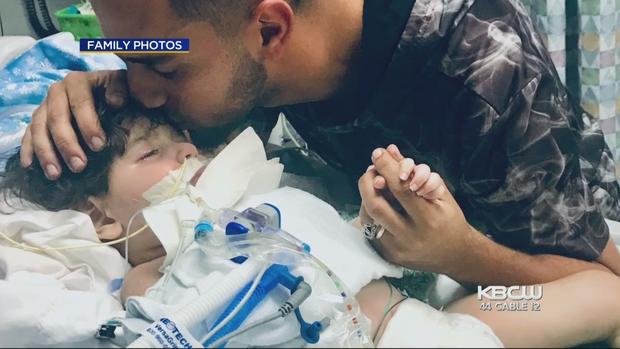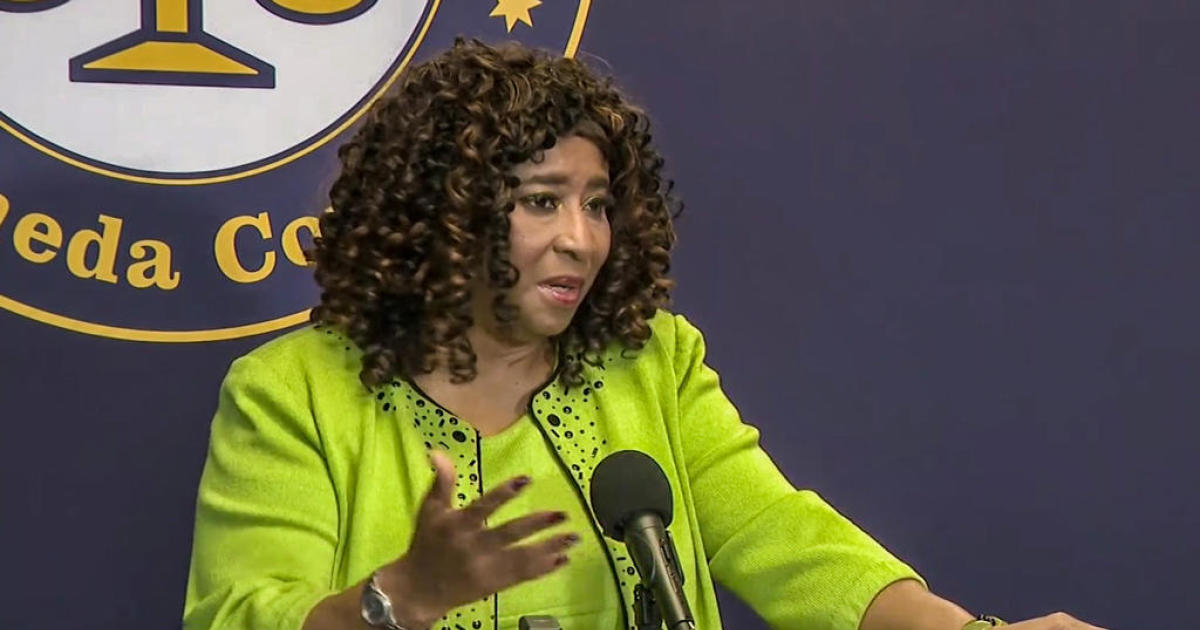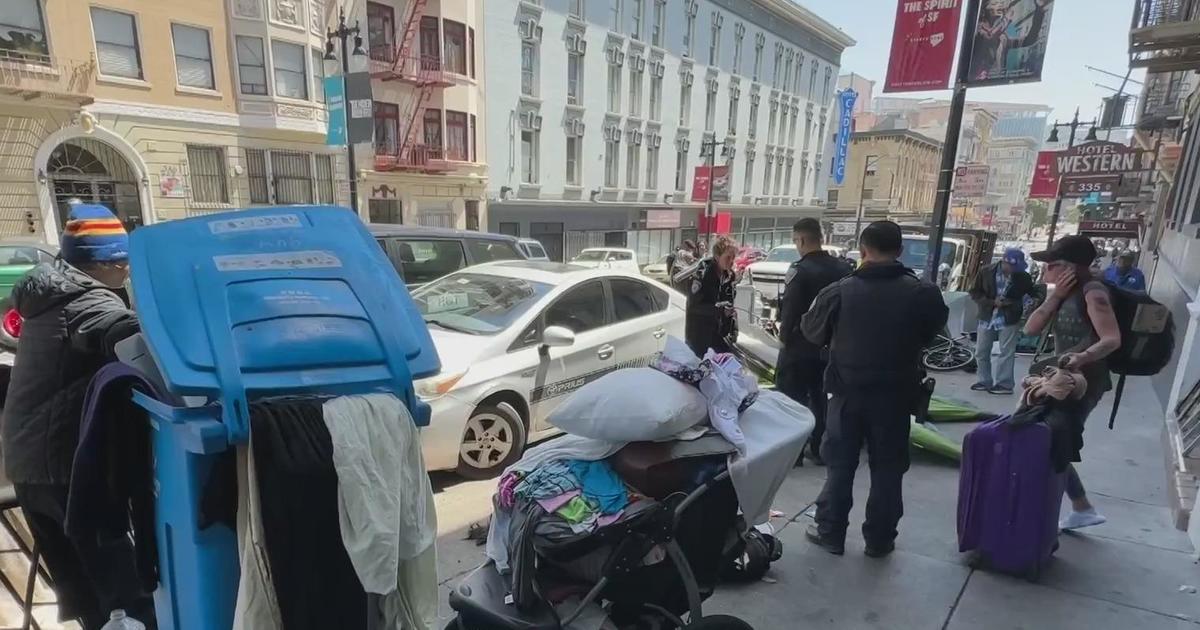Mom Granted Visa To Visit Dying 2-Year-Old Son At Children's Hospital Oakland
OAKLAND (CBS SF/CNN) -- A Yemeni mother was granted a visa early Tuesday to travel to the Bay Area from Egypt so that she can be at her dying son's bedside at an Oakland hospital.
But she is in a race against time.
Basim Elkarra, executive director of Council on American-Islamic Relations (CAIR) Sacramento Valley chapter, said Shaima Swileh will get on the earliest available flight out of Egypt. But the journey will take her at least 20 hours or more.
"We are happy that she can kiss and hold her son one last time," CAIR's attorney Saad Sweilem told reporters.
Swileh, a Yemeni national, has been prevented from coming to the U.S. by the Trump administration travel ban for people from several mostly Muslim-majority countries. Both her son, Abdullah, and her husband, Stockton resident Ali Hassan, are U.S. citizens.
Hassan was relieved that his wife was granted the visa, albeit her visit would be under bittersweet circumstances.
"I'm glad that my wife got her visa. I'd like to thank everyone who supported us," he said.
When the boy fell gravely ill from a genetic brain condition with his mother in Egypt, Hassen flew him the Bay Area on Oct. 1st so American doctors could treat him. It was the last time Swileh saw him.
On Tuesday, Swileh went to the US Embassy in Cairo, where her I-130 "Petition for Alien Relative" was approved.
"We're just so excited, unfortunately even with this win, it's still a loss," Elkarra told CNN.
"At least she'll come and be able to mourn with dignity, and see her son get buried, and bring some closure to all the pain... We just hope she can make it in time and be with her son in his last hours."
RELATED:
- 'Time Is Running Out' For Mother Hoping To Hold Dying Son One Last Time
- Family: Travel Ban Keeping Mother From Dying Son In Oakland
For several days, Hassan and Bay Area leaders have been pleaded with the White House to grant Swileh an exemption to the ban so she can be by her son's side. Doctors have told the family the boy is near death.
Abdullah has been on a ventilator at University of California San Francisco's Benioff Children's Hospital Oakland for more than a month.
"My wife is calling me every day wanting to kiss and hold our son for one last time," Hassan said at a tearful news conference Monday. "Time is running out, please help us get my family together again."
The news of the visa came shortly after Hassan appeared on CNN pleading with consular officials to expedite his wife's humanitarian visa application so that she'd be able to see her son one last time.
"Time is running out for my son, to be honest," Hassan told CNN hours before news of the visa came. "All she wishes is to see her son, and that's it. We want to be together."
He issued a plea to President Donald Trump: "All families, they're supposed to be together. Right now, with my son's situation, he's facing death. I'm going through losing my son. It's really hard for me and for my mother and for my family and my wife, too. It's just really hard."
On Monday, a coalition of Bay Area community and religious leader joined Hassan in his effort to get his wife to the U.S.
"Our hearts are breaking for this family," Sweilem said. "The loss of a child is something no parent should experience, but not being able to be there in your child's last moments is unfathomably cruel."
"Over the last few days we did everything: we filed a lawsuit, we rallied members of Congress to inquire on his behalf, we mobilized over 15,000 emails from people across the country who were concerned," explained Zahra Billoo, Executive Director of CAIR.
"The wall-to-wall coverage, the outcry of 'Is this what America is about?' is the totality of what made a difference."
Betty Williams, president of the Sacramento branch of the National Association for the Advancement of Colored People, called on Trump to allow an exception.
"It's criminal that we have to stand before you and beg" for the family to be together," Williams said.
Meanwhile, Lynn Berkley-Baskin, community outreach chair for the Jewish Community Relations Council, urged U.S. officials to grant Swileh a waiver that "will show what we say about family values is true" and to show compassion for the mother and son."
The travel ban went into effect in 2017 when President Trump signed an executive order that largely bars visas for citizens from five Muslim majority countries: Iran, Somalia, Syria, Libya, and Swileh's home country, Yemen.
The ban was upheld as legal by a 5-4 ruling by the U.S. Supreme Court in June.
"It is imperative that they work to repeal the ban entirely. It's not about the waiver here and now, it's about the thousands of people like Abdullah who are stuck separated from their families," said Billoo.
© Copyright 2018 CBS Broadcasting Inc. All Rights Reserved. This material may not be published, broadcast, rewritten. CNN contributed to this report.




